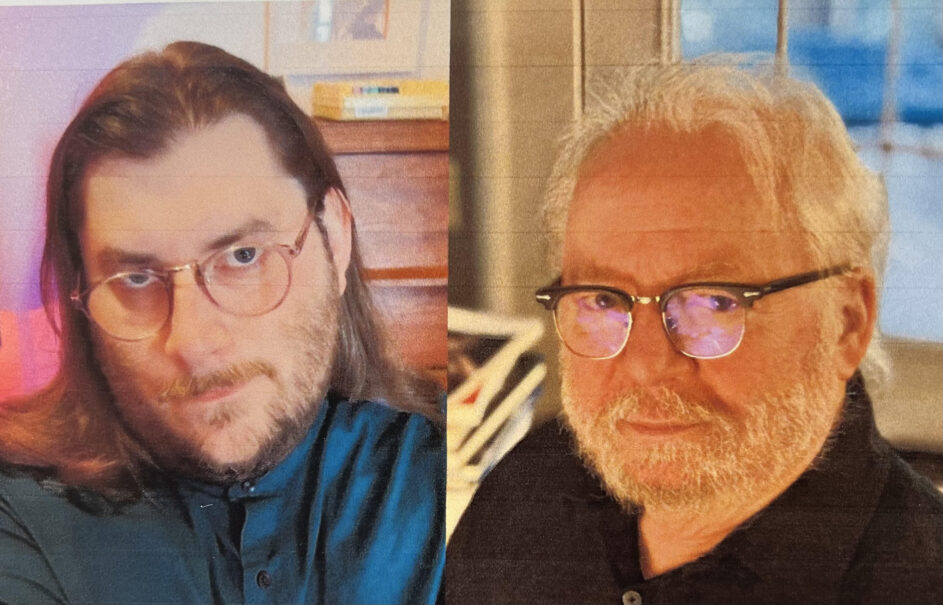Trying to make sense of the senseless takes time.
It’s been 15 years and 15 weeks since the unimaginable that only occurs someplace else became our own community’s reality with the shooting tragedies on July 27, 2008, at Tennessee Valley Unitarian Universalist Church on Kingston Pike.
The worst aspect of our American gun culture is the weaponizing of insanity, that part of people whose lives are so meaningless and forgettable to themselves that they choose to destroy the lives of others trying to make themselves memorable.
Such events are like the tentacles of an ink drop on moist fabric. They spread in all directions. The bodies of two dead have long been buried. But the partial deaths of witnessing souls are not yet measured.
For Knoxville poet Brian Griffin, an eye-witness who was in charge of children’s ministries on that fateful day at TVUUC, it’s taken years of therapy for PTSD, along with care in the rebuilding of his faith.
The gunman, an unemployed 58-year-old truck driver, whose name will not be noted to avoid giving him the attention he desired, came with a sawed-off shotgun concealed in a guitar case, along with a suicide note. But congregants overpowered him only partway through his plan. He is serving a life sentence without any possibility of parole.
His neighbors described him as a modern Confederate soldier, an image that took Griffin on journeys through the memories of his childhood among the Civil War battlefields in Chattanooga, as he constructed his cycle of poems in a culmination of his healing process.
Images of his dead friend’s pooled blood mingled with the red-stained Chattanooga battlefield dirt. He thought of his friend’s breakfast table where he would never again sit or smell the food.
Titled “Single Lens Reflex,” the collection will be published by Knoxville publisher Iris Press next year. The poetry begins:
“This is a book not of healing, but of witness
Not of solace, but of pain
It’s a hard look at the hard reality
of hatred and its consequences.”
Composer Forrest Wentzel, the nephew of Griffin’s life partner, Knoxville Symphony cellist Stacy Margaret Nichol, set a selection of the poems to music, in a composition for orchestra, mezzo-soprano and bass, titled “Sanctuary Walls.”
On October 17, 2023, using Wentzel’s original piano score before it was orchestrated, the hour-long work was performed at the University of Tennessee Natalie L. Haslam College of Music’s Sandra G. Powell Recital Hall, with pianist Julia Haas, and Wentzel’s parents, Karen Nickell, mezzo-soprano, and Andrew Wentzel, bass, singing Griffin’s words.
Wentzel’s music is like an adult coloring book bringing Griffin’s word drawings to life in ways that are both separate and complementary to the poetry’s own internal music of rhythms and patterns.
Neither the power of the sung story, nor the music, ever lagged. It is “intended to expose the grotesque and surreal nature of violence,” Wentzel wrote in his program notes. There are moments of thundering percussion suggested in the piano’s bass range that thickened the power of Griffin’s darker images.
There were also moments of twisted, transparent dissonance, as Griffin’s word images recalled memories of his slain friends and the lost innocence of the children he had sent scurrying up the hill toward the neighboring Second Presbyterian Church, which, ironically, had been the same path Civil War Confederate soldiers had taken up toward the Union soldiers defending the hill from the top.
“These are not ‘therapy’ poems,” Griffin said in his opening remarks. “There are attempts to share a glimpse into the horror of hate-based violence.”
I hope “Sanctuary Walls” soon gets the full-scale performance it deserves. It is not pleasant, easy listening. It isn’t intended to be. It is emotionally charged art poetry and music in the service of life’s most confrontational and destructive experiences.
But Tuesday’s occasion, before a sizable audience of friends, local musicians and TVUUC members who experienced the tragedy, as well as live-streamed to an internet audience, was one I won’t soon forget.
The live-stream of this event can be seen here. If you are using your phone, select the square box with the start button from the menu with the heart and curving arrow. Then select “Sanctuary Walls” from the list that appears.
Wentzel’s program notes and Griffin’s poems in “Sanctuary Walls” can be found here. Select the three bars in the upper right. Then select “Past Events” to find “Sanctuary Walls” from the list that appears. Desktop computer screens may have a different layout.
Griffin’s book of poetry, “Single Lens Reflex,” will be available on Amazon and other online booksellers, and at local bookstores.
Harold Duckett is a longtime reviewer of local art.

